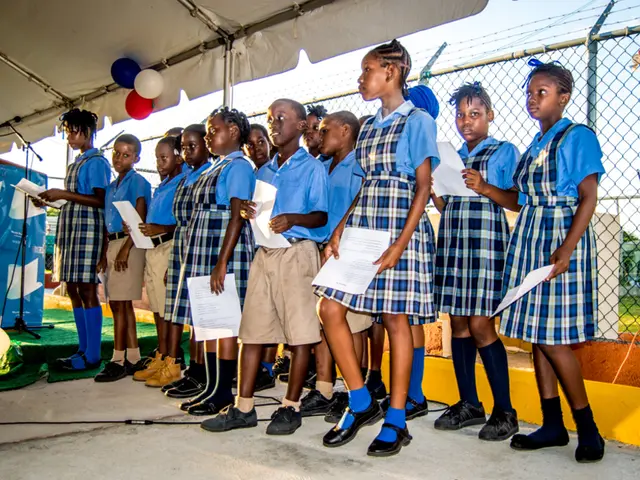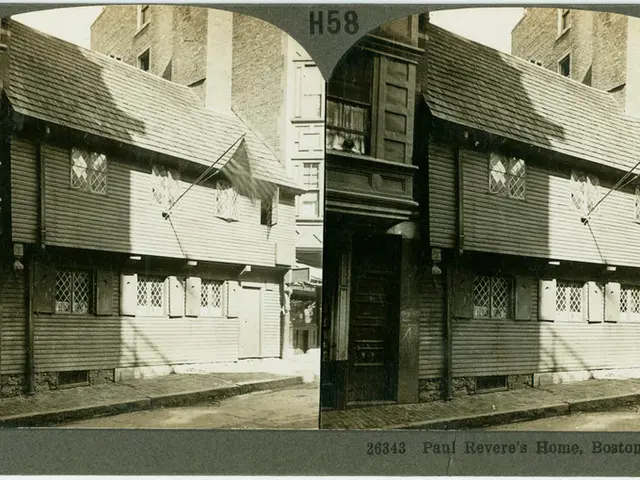Breaking: Supreme Court Paves Way for Disabled MBBS Aspirant's Admission
"Shift in Perspective Required": Supreme Court Mandates Enrollment of Disabled Aspirant at AIIMS
In a significant move towards inclusive education, the Supreme Court of India has ordered the allocation of a seat to a candidate with a disability who cleared the MBBS entrance exam in 2025. The ruling came after the court found that denying admission to the appellant was a clear violation of their fundamental rights as guaranteed in Articles 14 and 16 of the Indian Constitution.
The case revolves around Kabir Paharia, a candidate with a locomotor disability. The bench of Justices Vikram Nath and Sandeep Mehta, in their order, acknowledged that reasonable accommodation for people with disabilities is not a matter of charity, but a fundamental right.
Paharia, who has five half-grown fingers, was initially denied MBBS admission due to his disability. However, a medical board constituted by the All India Institute of Medical Sciences concluded that he demonstrated functional adaptation using his existing fingers during various tasks.
The denial of admission to Paharia reflects institutional bias and systemic discrimination, the court said, emphasizing that this undermines the principles of equal opportunity and non-discrimination in the Indian constitutional framework.
Under the Rights of Persons with Disabilities Act, 2016, a person with a benchmark disability is someone with a disability of 40% or more as certified by a recognized medical authority. The act mandates that administrative authorities must take affirmative measures to ensure that persons with disabilities can meaningfully participate in all spheres of life, including professional education.
The court further directed the National Medical Commission to revise its guidelines for admission to the MBBS course within two months to prevent any deserving candidate in the PwBD category from being denied admission. Advocates Rahul Bajaj and Amar Jain, both persons with benchmark disability, appeared for the petitioner, while the National Medical Commission was represented by Additional Solicitor General Archana Pathak Dave.
Paharia scored 542 out of 720 in NEET, cleared class X with 91.5% and class XII with 90%. His disability is described as a "congenital absence of multiple fingers in both hands as well as involvement of left foot (2nd and 3rd toe), the extent whereof has been assessed at 42%."
This ruling underscores the need for educational institutions to adhere to the provisions of the Rights of Persons with Disabilities Act and promote equal opportunities for all. It's a step forward in addressing discrimination against individuals with disabilities and fostering a more inclusive society.
- Despite scoring high marks in his academic pursuits and the clearance of the MBBS entrance exam, Kabir Paharia, a candidate with a disability, faced institutional discrimination when he was initially denied admission.
- The Supreme Court of India, in acknowledging the case of Kabir Paharia, emphasized that reasonable accommodation for people with disabilities is a fundamental right, not a matter of charity.
- In the realm of health and wellness, mental health, education, and self-development, this ruling signifies personal growth and learning opportunities for individuals with disabilities, reaffirming the principles of equal opportunity and non-discrimination enshrined in the Indian Constitution.
- The Rights of Persons with Disabilities Act, 2016, mandates administrative authorities to ensure that persons with disabilities can meaningfully participate in all spheres of life, including professional education, such as the MBBS course.
- The court's decision to direct the National Medical Commission to revise its admission guidelines for the MBBS course within two months is a crucial step towards promoting learning and fostering an inclusive society that values every individual's contributions regardless of their physical abilities or disabilities.







